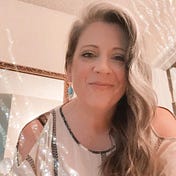
Crissi Langwell 🦋
Book Author
Romance & women’s fiction author. I write on Medium about a variety of topics because I’m not good at staying in one lane. crissilangwell.com/links

Book Author
Romance & women’s fiction author. I write on Medium about a variety of topics because I’m not good at staying in one lane. crissilangwell.com/links